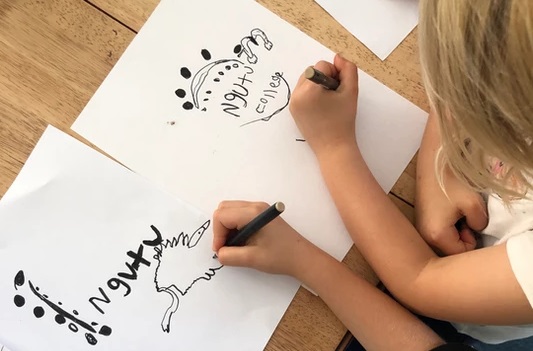
A new initiative at Adelaide’s Ngutu College will receive support from leading South Australian university researchers in alternative education programs for vulnerable and disadvantaged children.
The college is founded and led by Andrew Plastow, a highly experienced Aboriginal educational leader, who has sought assistance from Flinders University Dr Andrew Bills and colleague UniSA researcher Nigel Howard, who also is an adjunct academic at Flinders University.
Save the Children Australia has announced its first Impact Investment Fund loan to the Woodville North college in consortium with seven leading impact investors.
Ngutu College is an incubator space for redesigning the concept of schooling. It aims to integrate Aboriginal ways of knowing and the arts into a program that is compliant with the Australian curriculum.
For many years, Dr Bills and Mr Howard have worked on “doing schooling differently” by developing innovative approaches to retaining disadvantaged children in the education system, and instigating the Start Up and Specialised Assistance Schools projects as alternatives to mainstream models of education.
The experts will support Mr Plastow in his vision to create a new form of schooling with “Aboriginal cultures as its soul, children as its heart, and the arts as its backbone”.
‘Bespoke’ schools are the largest growth areas in Australia’s education system, the University research duo says, with the new school growing more than 100 students in its first year – with 38 Aboriginal students from R-7. Next year, the school aims to include kindergarten and Year 8 and from there grow to a K-12 college.

Save the Children Australia CEO Paul Ronalds says the goals of the college are clearly aligned with Save the Children’s goals to give disadvantaged and vulnerable children and equitable education.
“Clearly, the current school system isn’t working for every child in Australia,” Mr Ronalds says.
“Ngutu College is focused on providing an equitable, culturally informed and child-centered education to Aboriginal and Torres Strait Islander children, neuro-diverse children and children from low socioeconomic backgrounds.”
Mr Plastow was a celebrated and internationally recognised public-school principal, whose work featured in OECD research into innovative schooling.
To pursue the vision of doing school differently, he left the public system to establish a new form of schooling.
Our interest is the changing nature of ‘public schooling’ and the impact on young people negotiating their way through a changing school landscape,” says Mr Howard.
“One of the pressures on mainstream schooling is to increase their performance against a narrow range of measures, such as NAPLAN, that narrow and distort the curriculum.
“We have worked with Andrew to develop an impact evaluation framework that seeks to measure those things that the school and community value and provide a richer picture of the impact on the children and the community of Ngutu College.”
“We look forward to joining Andrew and the college as ‘critical research friends’ in its amazing journey,” adds Dr Bills.
The loan facility of $1.3m was arranged by Australian Impact Investments and provided through eight investors including Atlassian Foundation, Tripple, clients of Australian Impact Investments and Ethinvest, the Community Impact Foundation and Save the Children Impact Investment Fund. The loan will be repaid over the next 5 years.
Save the Children’s Impact Investment Fund is an Australian-first for an aid organisation. The fund is anchored by QBE, overseen by a Board and supported by an Investment Committee.

